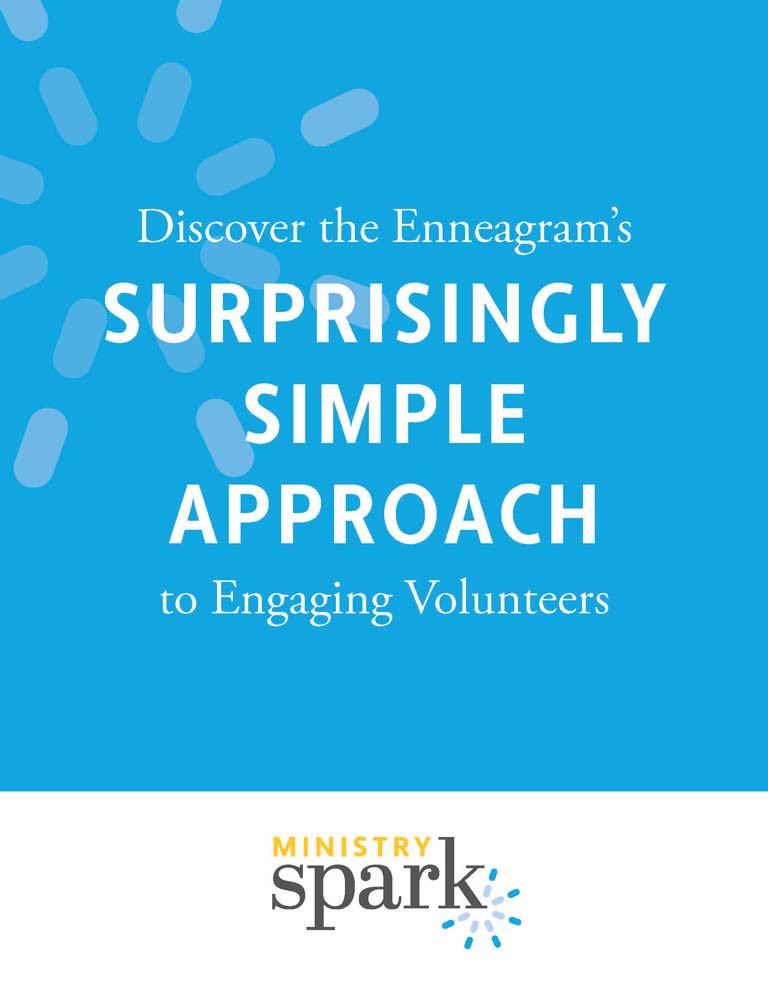Have you ever felt like communicating with your volunteers is a little like herding cats?
No matter how much you feel you have communicated, someone will inevitably say, “I never heard about that.”
The ironic thing is that we are inundated with communication methods. People walk around with the whole internet in their pocket. Yet effective communication feels more challenging than ever.

There are generally two types of information you need to share with volunteers.
Volunteers need to hear the “what.”
They need the information that will make them successful at their job. They need clear communication about what time to be there, what to teach, how to follow the safety policies and procedures, etc.
But for a successful ministry, the “what” is not enough.
Volunteers also need the “why.” It is essential that they hear the vision of the ministry and understand the great value of what they do.
Volunteers need to hear the “what” and the “why.”
How in the world do we communicate all of that when it feels like no one is listening? Let’s examine a few key principles that can help us communicate in a way that volunteers will hear.
Remember: Volunteers Aren’t Thinking About the Church 24/7
Our job requires us to have children’s ministry constantly on the brain. The large majority of our volunteers are working other jobs during the day and doing normal life stuff in the evenings.
We get frustrated that they don’t respond to us right away or that they don’t read our information until Saturday night. We sometimes neglect to consider that they are living very full, very busy lives too.

And while that email is of level ten importance to us, it probably isn’t that high on the scale to them. They have been dealing with work issues and family issues.
While they love Jesus and the church, thinking about this week’s lesson may not be their very top priority. We have to respect and understand that. And we need to do our best to meet our volunteers where they are.
Use Effective Methods
You have to identify which methods of communication your people actually use.
If the majority of your volunteer base is on Twitter, that is a logical place to communicate.
But if most of your congregation is not technologically connected, you may have to send out old-fashioned mailings.
Starting a Facebook group isn’t going to help you a whole lot if most of your volunteers are not on Facebook.
Research has shown that over 95% of texts are read. That’s an incredible statistic. Ten years ago email was your best bet. Today, without a doubt, it is text.

But you have to keep messages short and sweet and to the point. Text messages work best for short reminders or announcements. Look into services such as Flocknote or Remind to send mass texts more efficiently.
Email is still best for sending more in-depth content, details, or longer information. You can include pictures, video links, links to other webpages, and more.
Using a system like Constant Contact or MailChimp allows you to gauge who actually read your message, who clicked on the links, and more, giving you an idea of the effectiveness of what you are sending.
Online videos are popular with many age groups. Can you send out info via a short (think 2–5 minutes) video?

Discover the Enneagram’s Surprisingly Simple Approach to Engaging Volunteers

Discover the Enneagram’s Surprisingly Simple Approach to Engaging Volunteers

Discover the Enneagram’s Surprisingly Simple Approach to Engaging Volunteers
Over-Communicate the Important Things
The most crucial information that we really want people to know has to be over-communicated.
A ministry reality is that as soon as you get tired of saying something, there will be many people just hearing it for the first time.
You can never assume that because you have said something people truly know what is happening. You can’t assume that just because you sent an email, everyone read it.
As soon as you get tired of saying something, many people will just be hearing it for the first time.
Assumptions get us into a lot of trouble when communicating with volunteers.
Communicate critical information using as many avenues as possible.

Let’s say, for example, that we are changing lessons for an upcoming Sunday.
I am going to share that information with volunteers when they are at church, follow up with an email, send a text reminder, and put it on Facebook. (And you know someone will still show up that Sunday with the wrong lesson).
Important information must be shared repeatedly and through a variety of means.
Don’t Be a Spammer
While it is essential to over-communicate vital information, you also have to walk that very thin line between communicating effectively and spamming everyone so much that they block you.
Do you have that person in your life who consistently forwards big long emails that they feel you really should read? How frequently do you actually read those?
I don’t either. And then I realized that my volunteers do the same thing. I realized that I must only communicate loudly the very most important things.
If everything is important, nothing is. If I send a lengthy email every other day, they will stop reading any of them.
Utilize the Time Volunteers are Already There
One of the best changes I ever made was to cut down on our “come back at a random time for a big group” meetings and started meeting with volunteers for five minutes before each service.
On Sundays we bribe with donuts.
Five minutes doesn’t sound like a lot, but it has loads of potential.
In five minutes I can share one leadership thought or policy reminder or announcement about something that is coming. I can remind them of important information. We can share prayer requests and pray together.
Not only has it made it easier to disseminate information, but community has grown greatly within the group.
And—bonus—no one has to come back and spend more time away from their families.
Make Meetings Memorable
There are times when a meeting is beneficial. But if your meetings are not engaging or relevant, or if people leave wondering why you didn’t just email the information, you won’t have many people at the next meeting.
Meetings should have a specific, important purpose. Vision casting, team building, or introducing major changes are all great reasons to have a meeting.
And these meetings should definitely include ice cream or some other fabulous treat. You may also need to provide childcare to ensure more volunteers are able to participate.
Plan engaging, informative meetings and make sure you are being a good steward of everyone’s time.
Effectively communicating with volunteers is a complex puzzle. Every team is unique and, unfortunately, there is not a magical, one-size-fits-all answer.
However, with some strategy and willingness to try different things, you can find a plan that fits your ministry and helps all volunteers stay in the loop.











